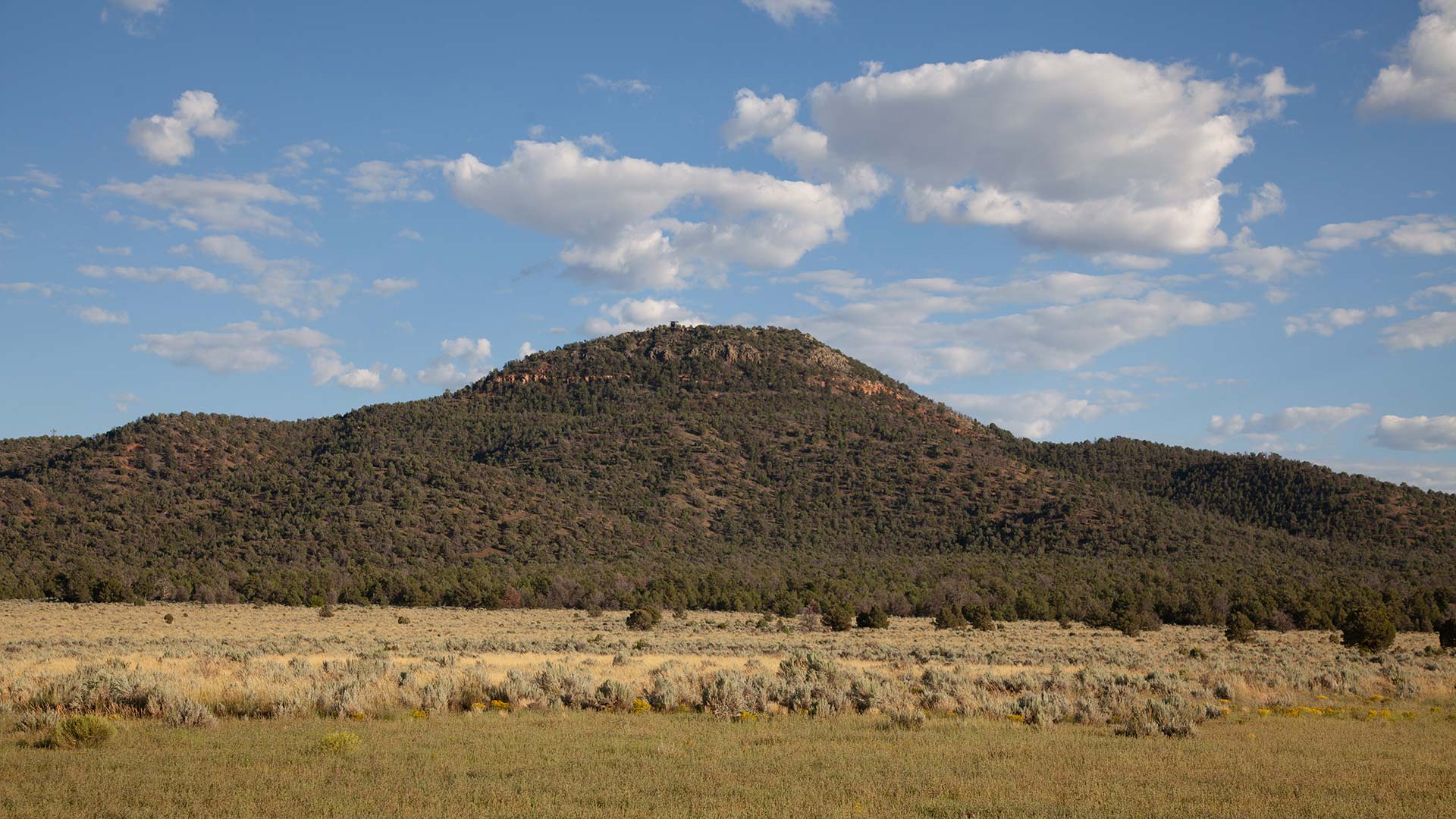 Red Butte in Coconino County, Wednesday, Aug. 30. Known as "Wii'i Gdwiisa," in Havasupai, the sacred grounds are protected under President Joe Biden's Baaj Nwaavjo I'tah Kukveni- Ancestral Footprints of the Grand Canyon National Monument.
Red Butte in Coconino County, Wednesday, Aug. 30. Known as "Wii'i Gdwiisa," in Havasupai, the sacred grounds are protected under President Joe Biden's Baaj Nwaavjo I'tah Kukveni- Ancestral Footprints of the Grand Canyon National Monument.
A federal judge denied three Arizona Tribal Nations requests to intervene in a lawsuit between President Joe Biden and the state legislature.
The suit centers on the federal designation of nearly one million acres of public land in the region as the Baaj Nwaavjo I'tah Kukveni – Ancestral Footprints of the Grand Canyon National Monument. Senior United States District Judge Stephen McNamee says the tribal nations did not meet the standard needed to prove that current parties in the case cannot adequately represent their interests.
“Tribal Nations were extensively involved in advocating for the Monument’s creation, and the Proclamation establishing the Monument recognized that the lands are sacred to Tribal Nations and recognized that Tribals Nations would play a part in the collaborative management of the Monument,” McNamee wrote. “The Proclamation itself is thus strong evidence that, as pertains to the Monument, the interests of the United States and Tribals Nations are especially aligned.”
Northern Arizona Tribal Nations like the Hopi, Havasupai, and Navajo must now rely on the United States legal counsel for the case, instead of having their own representation.
Native American Rights Fund Deputy Director Matthew Campbell represents the Havasupai and Hopi tribes. He says that historically the United States has not always adequately represented tribal interests, like when the U.S. Supreme Court found that the federal government does not have an obligation to the Navajo Nation when it comes to water rights in a water rights litigation.
“In that case, it was very similar,” Campbell said. “The tribes moved to intervene, but their motion was denied because the United States could adequately represent those interests. Then we see 50 years later that the United States did not stand up for those rights and those interests.”
Campbell says that decisions like Monday’s ruling can potentially undermine tribal sovereignty.
“It really does affect the ability of the tribes to represent their own sovereign interests in terms of having a government to government relationship with the United States and managing lands that they have traditional ties to.”
However, he is hopeful that something may change in the future.
“The court did note it was a close call, and left the door open that if there is a split between the position of the United States and the tribes, they certainly have the right to intervene,” he said. “I think we're just assessing at this point the next steps in terms of what that may look like.”
The land in question is the ancestral homeland of several Northern Arizona tribes. All 22 of Arizona’s federally recognized tribes helped draft the language of the designation.
McNamee also denied 10 conservation groups requests to intervene. He did grant Governor Katie Hobbs’ request to intervene.
Now that the land is considered a national monument, that status restricts the development of new mines in the region. Republicans claim that the designation is an overextension of presidential authority and violates the Arizona Wilderness Act of 1984 since certain lands designated as wilderness are included in the National Monument.

By submitting your comments, you hereby give AZPM the right to post your comments and potentially use them in any other form of media operated by this institution.